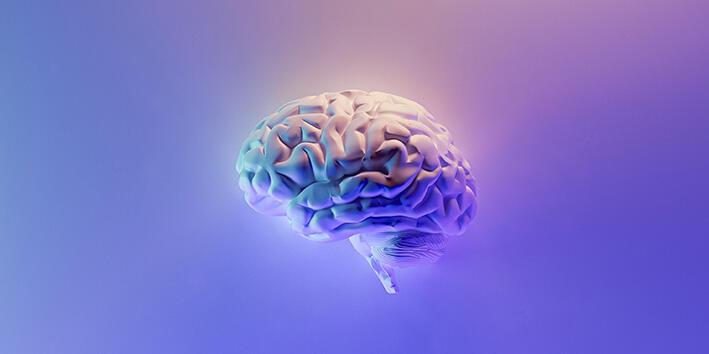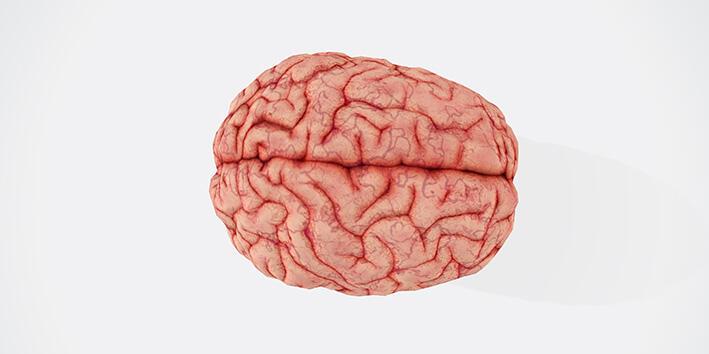Dopamine is one of the many chemicals used for communication between your brain cells – it is a neurotransmitter – and is responsible for many different behaviours, from mood regulation, learning and memory, all the way to basic bodily movements.
Dopamine is vital to a healthy mind and body, and this is never more clear than the situations where it stops working properly. Parkinson’s disease, Huntington’s disease, gambling disorders, schizophrenia, depression and ADHD all have symptoms that can be traced back to problems in the dopamine systems.
Knowing the science behind dopamine can help us better understand how it works, the effects it has on the body and mind and how we can help treat people when dopamine goes wrong.
What does dopamine do to your brain?
We still don’t completely understand all the things that dopamine does in our brain, but we can associate it with two main neural circuits – the mesolimbic and the nigrostriatal loops.
The Mesolimbic System
The mesolimbic system is the pathway in the brain best associated with reward learning, motivation and pleasure – although scientists often disagree on the terminology of these!
Defining ‘pleasure’ and ‘reward’ are two difficult things. While we might subjectively know what feels pleasurable to us, finding a scientific and objective measure (one which can be observed without a person explicitly telling you) is really hard.
What scientists can say for sure is that dopamine levels in this system (1) increase when you are given something better than you expected (think chocolate when you thought you were getting broccoli) and (2) dip when you are disappointed by an outcome.
However we define it, this system is in place to make sure you keep doing the things that are important for your survival – you enjoy eating good, calorific food, and drinking water, socialising (and having sex) with other humans – and so you do more of it!

The Nigrostriatal System
This pathway exists parallel to the mesolimbic system and does something very different. Dopamine in the nigrostriatal pathway seems to be responsible for controlling the physical movements done by your body.
Your brain is constantly suggesting different things that you could be doing in response to the stimuli it receives from the world, and the nigrostriatal pathway is in charge of stopping the pointless movements and letting the useful ones through.
This is our best understanding for why people with Parkinson’s disease show dyskinesia (the medical term for the uncontrollable shaking). The dopamine neurons in this pathway have died, and so every single movement proposed by the rest of your brain is being allowed through. Replenishing dopamine levels with levodopa medications help alleviate these effects.
Other brain effects
Of course, dopamine isn’t confined to these two systems. It’s also been shown to impact emotions through its role in the amygdala. It works in your hippocampus to help your memory and effect your ability to learn. Dopamine even has a job in improving your sense of smell and causing lactation.
Dopamine in the body
Even though dopamine is largely based in the brain, it does have a couple of jobs around your body, including effecting how constricted/relaxed your blood vessels are, reducing insulin production when you are low on sugar and protecting your gut lining.
How can we get more?
There are many reasons that your body may not have enough dopamine, from age to mental and physical health conditions. But all hope is not lost, there are actually several things you can do to naturally increase the levels of dopamine in your system.
The simplest of these are to exercise often (which no one likes hearing) or to eat more foods containing tyrosine. Tyrosine is an amino acid (a protein component) which is used by a small region of your brain, the substantia nigra, to produce dopamine. It can be found in foods like cheese, avocados, soybeans, fish, sesame seeds and most meats.
Another proven way to increase your dopamine is to participate in activities that activate the mesolimbic system – spend your time doing things that feel rewarding, like learning a new skill or working on a hobby.

Can we have too much?
Just as Parkinson’s disease is caused by not having enough dopamine, too much dopamine isn’t great for you either.
Outside of diseases like ADHD and bipolar discorder, the impacts of too much dopamine are seen in addictions. The majority of addictive activities (drug taking, gambling, smoking etc.) will in some form increase the levels of dopamine in your brain.
In the early stages, this dopamine rush makes you feel euphoric and, just like mesolimbic dopamine motivates you to find food, you are incredibly motivated to get more dopamine.
However, high levels of dopamine in the long term cause low blood pressure, hallucinations, impulse control disorders (like addictions), mania and aggression.
The takeaway
Dopamine is a fascinating brain chemical with many functions in the brain. It improves your motivation levels, helps you control your actions, rewards you when you do things that are good for your survival and impacts your emotions, learning and memory. Scientists are still researching dopamine today in order to help when it goes wrong, and how it can be used to improve people’s lives.
If you think that your quality of life could be improved through changing your dopamine levels, please speak to a medical professional—everyone deserves to have a healthy brain and body.
About the author
Charlotte Collingwood is a neuroscience PhD student who uses computers, maths and a biology background to learn more about how the brain works. She completed a three-month internship with us in 2023, sharing her love for all things science. She can be found on Twitter at @NeuroCharlotte